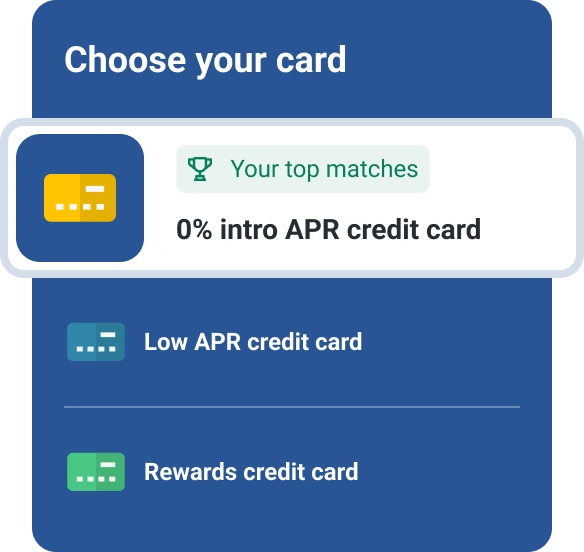The Do’s and Don’ts of Credit Card Intro Bonuses
Quick Answer
Credit card intro bonuses can quickly build your rewards account balance, but be mindful of these do’s and don’ts:

Many credit cards offer new cardholders a large intro bonus—extra points, miles or cash back rewards that you can earn if you meet the requirements. Some bonuses are so good that they entice thousands of people to apply for a new card. But there are also drawbacks. Here's what you should know, do and avoid if you're considering getting a card with an intro bonus.
Do: Review the Terms
The intro bonus offer might be an attention-grabber, but there's also a lot of fine print that accompanies it. Review the terms carefully to make sure you'll qualify and can meet all the requirements. Some specifics you'll want to look for include:
- The minimum spend: How much you'll need to spend using the card to earn the intro bonus. The purchases may need to be fully processed to qualify, so don't wait until the last day to try to meet the requirement.
- The time frame: Consider how much time you'll have to meet the minimum spend requirement and whether you're likely to spend that amount on your usual purchases.
- Eligibility: Review who qualifies for the intro bonus and make sure you meet the requirements. Some card issuers only let you earn the intro bonus on a card (or a family of cards) once, even if you close the account and apply for the card again later. Others explicitly say how long you need to wait if you close your card and want to get another intro bonus.
- Qualifying purchases: Some purchases, such as gift cards, generally don't count toward minimum spend requirements. Cash-like purchases—such as a money order or lottery ticket—also might not count, and you could be charged a cash advance fee and interest on these purchases.
- The annual fee: Cards with the highest intro bonus tend to have annual fees, and some cards require you to keep the account open for over a year (and pay the annual fee twice) if you want to keep your intro bonus. But there are also options without annual fees.
Some intro bonuses might work a little differently. For example, you might earn bonus rewards on certain purchases for a limited time instead of getting a lump-sum bonus. Or, there might be two tiers of minimum spend requirements, each with an accompanying bonus. Whatever the arrangement, consider the requirements, timeframe, eligibility, fees and whether the offer aligns with how you usually spend money and plan to use the card.
Don't: Overspend to Earn an Intro Bonus
Big bonuses can make headlines, and if you're reading credit card reviews, you might feel like you need to get the card right now. But large bonuses also often require a large minimum spend.
Spending $2,000 dollars more than you would otherwise to earn a $1,000 reward doesn't make sense, especially if you carry the balance and wind up paying interest. And while you'll likely earn more in rewards than you'll spend on interest if you pay off the balance quickly, having a large balance could put you in a precarious situation where credit card debt builds and additional interest payments accrue.
Do: Have a Plan for Meeting the Spending Requirement
One way to avoid overspending is to have a plan for meeting the minimum spend before applying for the card. Ideally, your typical day-to-day spending will be enough. But for bonuses that require spending a lot, you could try to time the application with major purchases—perhaps before a busy travel season or the holidays.
In some cases, an unconventional route might make sense. For example, there are services that let you pay your income taxes with a credit card. While you'll pay an extra fee on the transaction, it could be nominal compared to the intro bonus you earn.
Don't: Ignore the Rest of the Card's Features
An intro bonus might be what first draws you to a card, but it's also important to review the rest of the card's benefits to make sure you get as much value as possible.
For example, some travel credit cards come with a free Priority Pass Select membership, which gives you (and sometimes companions) free entry into airport lounges. However, you often need to activate this benefit before using it—you can't just show up at the lounge with your credit card.
Also, review the card's purchase and travel benefits, reward programs and any other perks that you can use.
Do: Compare the Current Intro Bonuses
You'll want to compare different cards' intro bonuses to see which might be best based on the minimum spend requirement and your financial situation.
Additionally, try to compare a card's current bonus to its previous offers. Some credit card bloggers might share a record of a card's intro bonuses or tell you how the current offer compares to previous ones. This can help you determine if it's a good time to apply, or if it might make sense to wait and try to get a better offer in the future.
Sometimes there will also be different intro bonuses for the same card depending on whether you apply on the card issuer's website or with a link from another website.
Don't: Try to Game the Rewards Program
Many card issuers have anti-gaming language in their terms and conditions. The specifics vary by card, but the basic idea is that if you're trying to abuse a rewards program, the card issuer can take back your rewards. They may even close your credit card and, in some cases, close all your accounts at the company.
For example, if you make a large purchase to meet a minimum spend requirement and then return the product after you get the bonus, the card issuer might claw back your rewards. If you already used the rewards, your rewards account balance could go negative, and any new rewards you earn will only bring you closer to zero.
Check Your Card Offers
Experian's card comparison tool lets you quickly compare credit cards and the current intro bonuses. But even if you find the perfect card and qualify for the intro bonus, you still have to qualify for the credit card. Create or sign into your Experian account to check your credit report and score for free, and then get matched with credit card offers from our partners based on your unique credit profile.
Get the rewards you deserve
Cash back? Miles? Points? Whatever suits your goals, we can help match you to personalized rewards card offers. Start with your FICO® Score for free.
See your offersAbout the author
Louis DeNicola is freelance personal finance and credit writer who works with Fortune 500 financial services firms, FinTech startups, and non-profits to teach people about money and credit. His clients include BlueVine, Discover, LendingTree, Money Management International, U.S News and Wirecutter.
Read more from Louis

